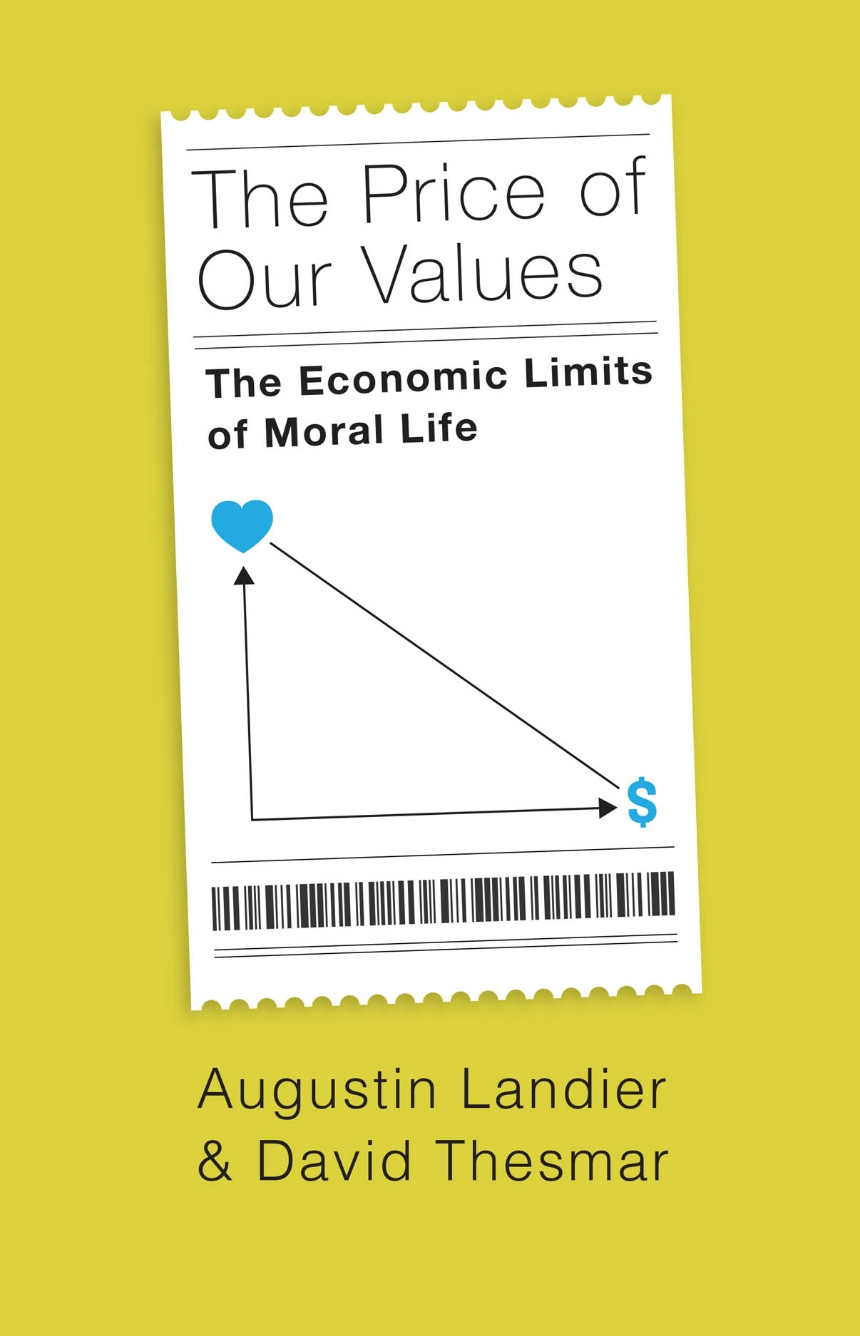If all values are an effort, prices are a meeting of efforts
a market is a type of worlding
I held the book in my hand and thought, merely looking at the title—
… it won’t know worlding, i guesses, it will moralise… but anyway: If all values are an effort (or here), or an inclination towards such labours, a price is a meeting of the efforts, a market is a type of worlding. The market, like morality, is a subset of worlding, a practical subset, a ‘real world’ subset, the hustle and bustle of he hell of other people.
So I hope this book helps us to move towards recognising the worlding we do with every breathe of the self. (The trade-offs are not just simplistic individual/collective slefish/altruistic binary options but richly danced and fractally deepening from the threshold that edges chaos and routine.)
Worlding has a long way to go.
Landier, Augustin, and David Thesmar. The Price of Our Values: The Economic Limits of Moral Life. The University of Chicago Press, 2025. 9780226827094Now to read the book.
[before this I was always hesitant to include the market as a worlding outcome with religion/performance/polity/art]Postlect: On a quick run through over coffee, the book is a good run down on the debates in economics vis-a-vis what I would term ethics, i.e. that type of hypothetical cosplaying or choice-gaming which dances this way and that way over the costs of choices and their implications. More economic existential crit than moral philosophy, and it presents evidence from descriptive psychology, i.e. market research I guess. Worlding research? It questions economics with the description of peoples’ normative preferences and their confusions.
It argues for a diversity of valuing our efforts and is a good introduction to this economic moralising by way of its arguing through this and that.
economists should learn to integrate the diversity of value systems versus universalism
An example of this is on about page 78 Landier and Thesmar work through Ronald Dworkin‘s distinction between a person’s resources and preferences: and that people “should be responsible for their preferences and not their resources” as resources are beyond our control. If one points out that preferences do not depend on free will, and how socan one be responsible for them? Dworkin answers by splitting preferences into cravings versus tastes.
Notice the normative use of should there. The worlding urge is a primary driver even in meta-worling discussions like how to organise the outcome of worlding called the market and the state.
Notice the pushback is about how we should should is also in terms of culpability, and it finer selfing distinctions, and not say, a vision of cosmis balance or imperial order and edict (like it is for the Catholic Church).
ALso, with this “preference’ and ‘ resources’ where is effort, agency is reduced to a point-of-view rather than a compositional movement, where is living. The market here is still a grounded down to the figure of the state, even if it is only a bogeyman
I.E Where is labour?
One of the reasons I use the word effort is to avoid the reification that the word labour has suffered even since Adam was additionally cursed on their expulsion with a mortality sentenced with lifelong labour. A bronze age sensibility no doubt. Ever since then the baboons among us have tried to create hierarchies where it is at the bottom, and the best of us do no work. More recently the medieval period both gave us capitalism and maintained the theft of labour and kept it out of the discussion, but Marx’s labour theory of value did not help this at all, it commodified or defined labour politically in terms of capital, and did not understand effort.
All this socially blinds us to the effort require to self a life in the world among others. It substitutes treasure for experience. It substitutes a war chest for worlding well.
Augustin Landier and David Thesmar’s The Price of Our Values: The Economic Limits of Moral Life begins to move us away from those debilitating disputes.
Economics drawing on gentlemanly natural philosophy and its clerical instruction of monasteries past re-badged as universities when industry marries into landed minorities, forgot effort as soon as it can, trying to reinscribe paradise into the sweat of other peoples brows with prices game to ignore their efforts. In economics efort returns as agency, but where choice is restricted to preferences and prhaps most transaction costs, amid complaints it is impossible to find help.
But it appears economics is changing.
One thought I had as a side quest was the question of how empathy and loyalty are related. I see them as enemies because the most un-empathetic or even un-ironic anti-empathy voices always lump for loyalty: narcissists and psychopaths. Loyalty can be seen to still operate (as submission) in morality-free zones. The ethics of loyalty need to be questioned more than empathy. Loyalty cannot create the world among us.

